Photo story: visit my journaling workshop
All photos by photographer & creative marketing freelancer Sid Bortolazzo
I arrive at The Create Place at 3 PM to set up for the 3.30 PM Saturday edition of the workshop (we alternate Thursdays and Saturdays).
I switch the lights on, dump all my stuff out on the table, and get out this box containing some equipment (I bring more in my backpack). Then, I put the kettle on. This summer I’ve been making ice tea for the class, and it needs time to brew and then cool before I serve it with ice.
I start haphazardly piling stuff onto the table, in no particular order but in a bit of a rush, partly because I’ve invited a regular attendee to arrive early to be in pictures. We don’t take photos at the regular workshops—personally, I think it’s intrusive! Today, we’re documenting the workshops in order to apply for funding to run them for loss parents. I gave notice on social media and I’ve put an extra line on a form to ask preferences, so am hoping it will be okay (I strongly urge everyone upon arrival to tell me if they don’t want to be photographed).
As our regular and her friend are arriving soon, I arrange the “table settings” ~ this always consists of a mini journal, glue, scissors, a unique syllabus, and the feedback form where attendees can also sign up for the WhatsApp group and newsletter. I’ve used the feedback both to include in my funding application (see above) and to improve the workshops. I’ve played around with music due to comments, added iced tea, and made a deal with a local bookshop to pick up their old magazines so we have a wider range of collage material (we now stock magazines on wilderness, wine, rock climbing, French protest art, and nude men ~ sadly I don’t know a stockist here for Peach Fuzz and I’m not giving up my old copies).
I spread the magazines down the table, opened to pages I think fit with the theme. One of my aims setting up the workshop, both physically and in terms of the syllabus, is to give people as many jumping off points as possible. We don’t have a whole lot of time to get inspired and different people are inspired by different things. The cellophane packages contain precut collage pieces, and are labeled with titles like ‘words’, ‘nature’, and ‘people’. Because we don’t spend the whole session collaging, and because some people will want to do less than others, this also offers flexibility. Rather than flip through magazines, you can look through the cellophane or tip out bags until you spot something that speaks to you.
My regular and her friend arrive so I put the final touches on the table. Other regulars start to arrive. Today, we have 1 regular who has been to 5 out of 6 workshops, another 2 who have attended 3, and someone who came last time who has returned this time. We also have 3 people who are new to the workshop. Saturdays tend to be the slightly slower day. Every Thursday so far has sold out. I’m happy when we sell out, but it’s a really peaceful vibe when we have slightly fewer people. I always greet people and find out their name, and then offer them tea. Today, knowing some people have gotten into the rhythm of things, I let the regulars know they could start collaging if they wanted to.
When everyone has arrived, and has some tea, we each briefly introduce ourselves, and then I read through this week’s syllabus. I start by why I call it “softcore” journaling, and our principles of non-mastery, anti-productivity, non-completion, and non-compulsory activities. Then, I explain this week’s theme. Each week, we do about 30 minutes of collage, then diary writing, and then fiction making using collage and diary as inspiration. Each craft has a paragraph of prompts. I encourage attendees to use any of these prompts to get going. Then, I read some examples of ideas that change when we apply our theme. I end each syllabus with a thought. Today’s was,
True love (be that friendship, romance, or fam) looks so similar to relationships that feature coercive control — both feature closeness, checking in on each other, and compromise.
It can be hard, especially when we don’t have great examples in our past, to discern toxic conflict (eg hurt dealt out on purpose, gaslighting, shaming) from healthy conflict (eg figuring out boundaries, differences of opinion).
One way is to ask - is there a next step after sorry? What happens when I reach out? Will this person come with me, to thank you?
Finding partners to do healthy conflict with you is a blessing. Thank them.
Then, I put on some relaxed music and we all start collaging. During the workshop, I let people know when it’s a good time to move onto the next craft (again—non-compulsory!), top up teas, refill snacks, and get on with my own journal. In the last 15 minutes, we wind down and chat a little about how the workshop went for us. I’m often surprised and moved to find that journaling has helped us work through the stories that we carry, helping us to carry them, cope with them, or renegotiate them for our future selves.
See you Thursday 4th and/or Saturday 13th September for our special end-of-series workshop.
Imbibing, currently:
Multiple games of Scrabble,
Die Hard with a Vengeance,
and apples from the garden.


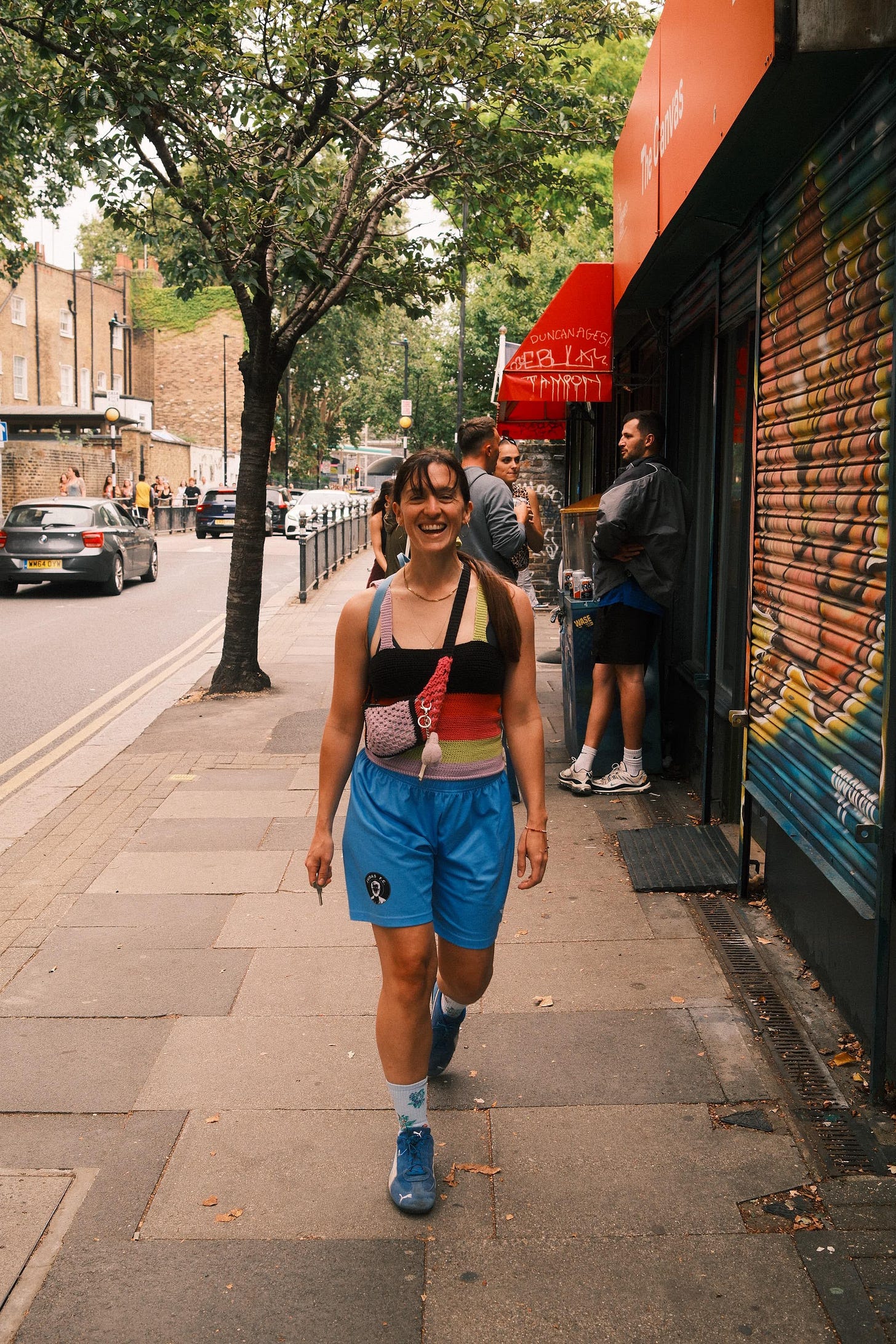
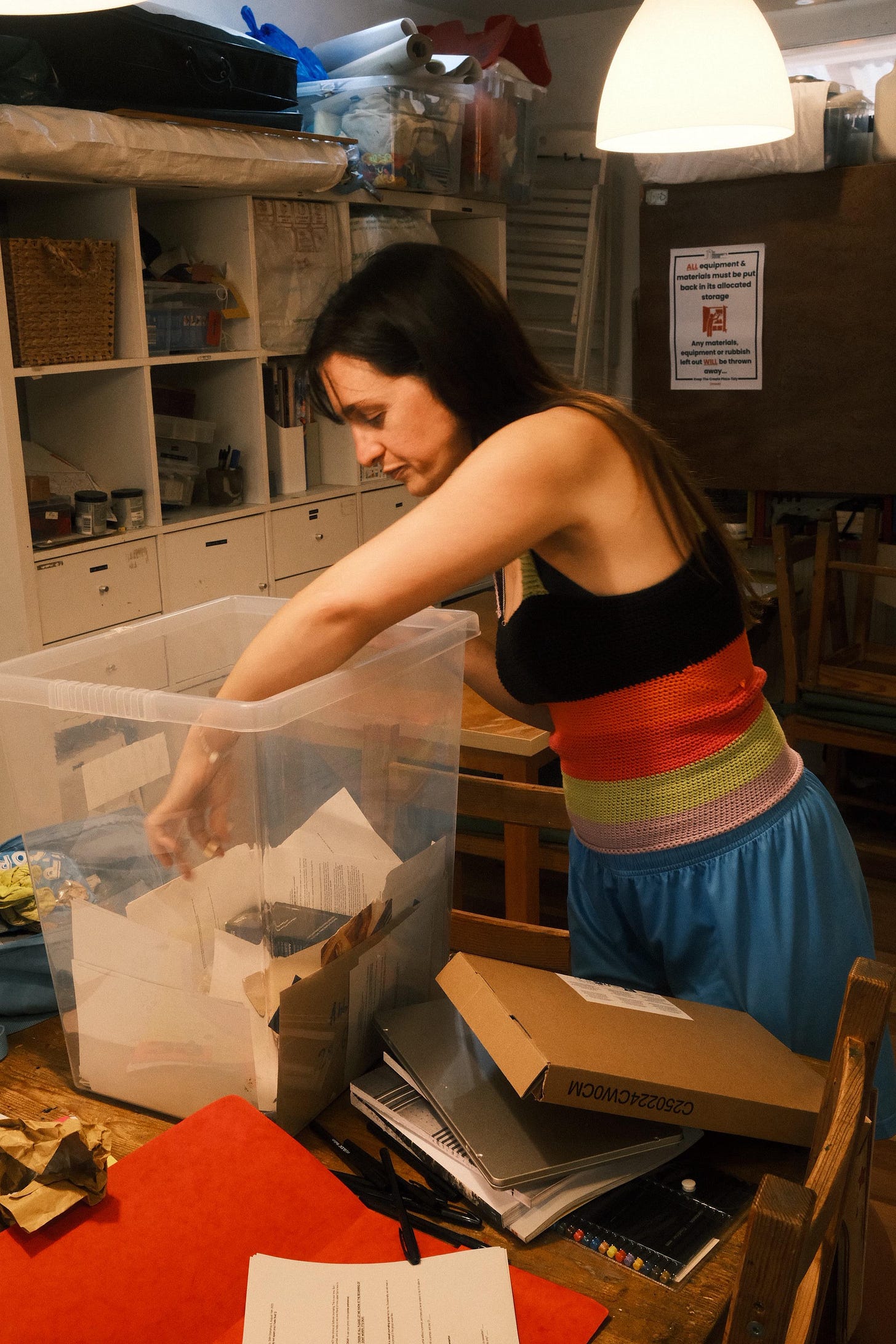

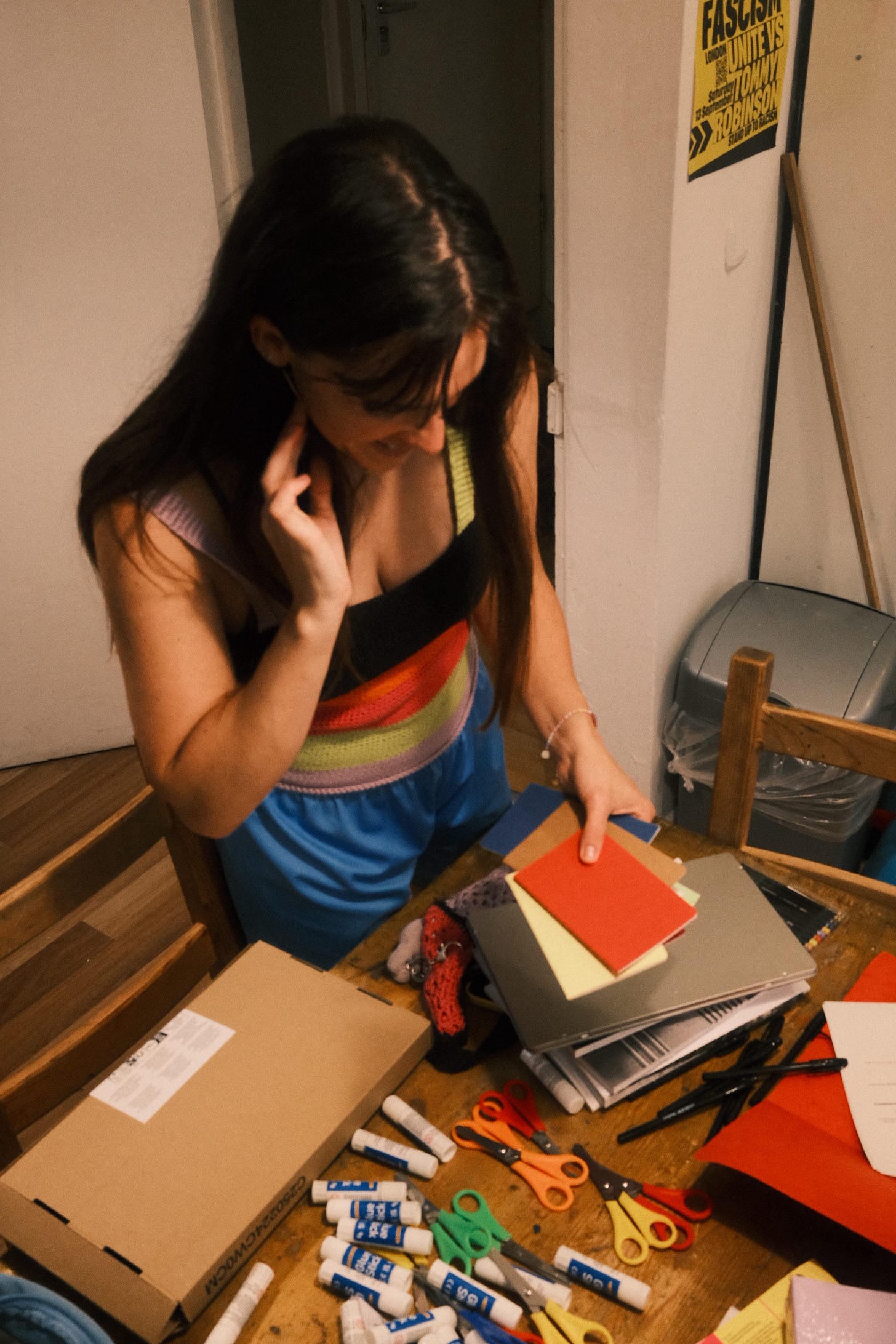
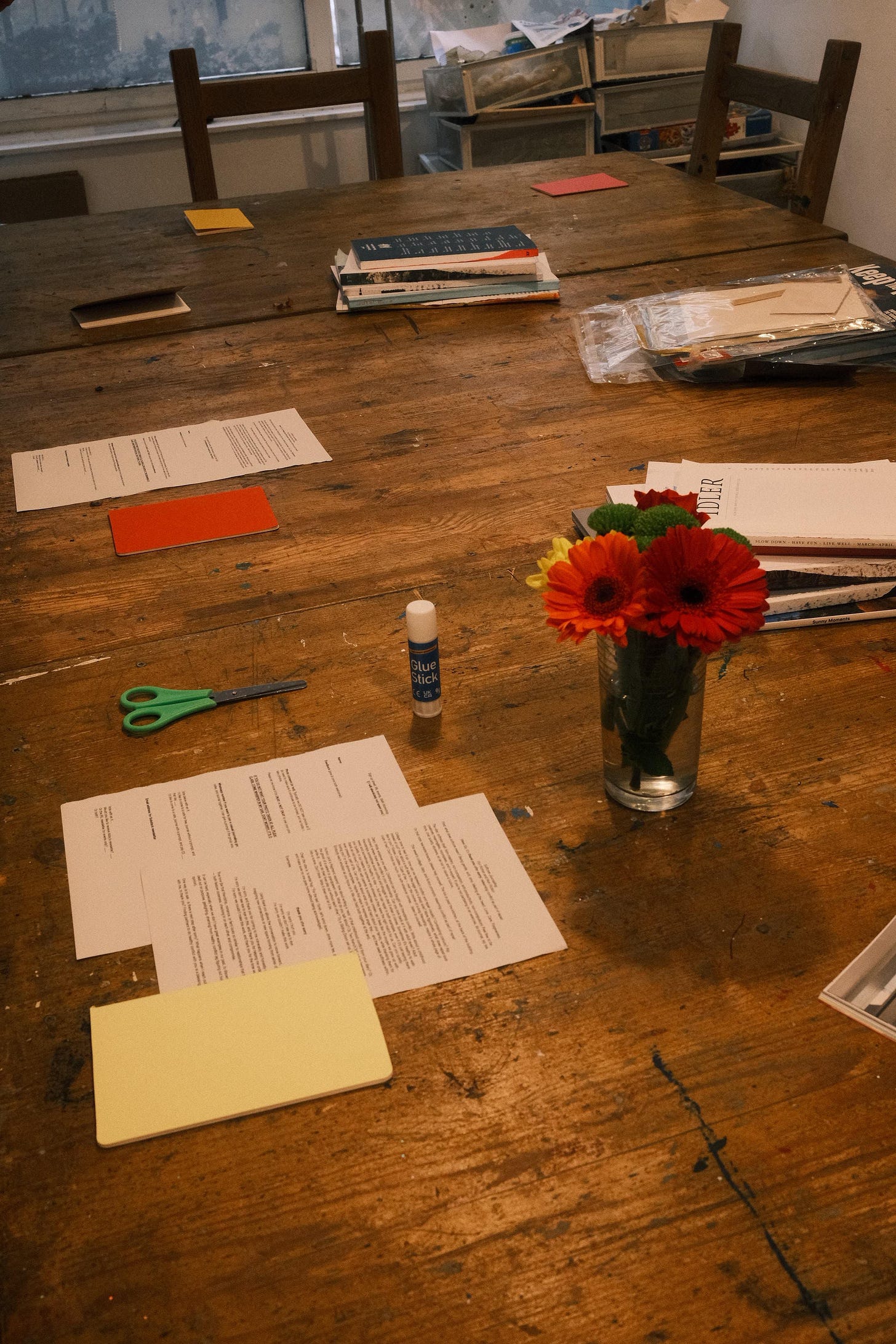
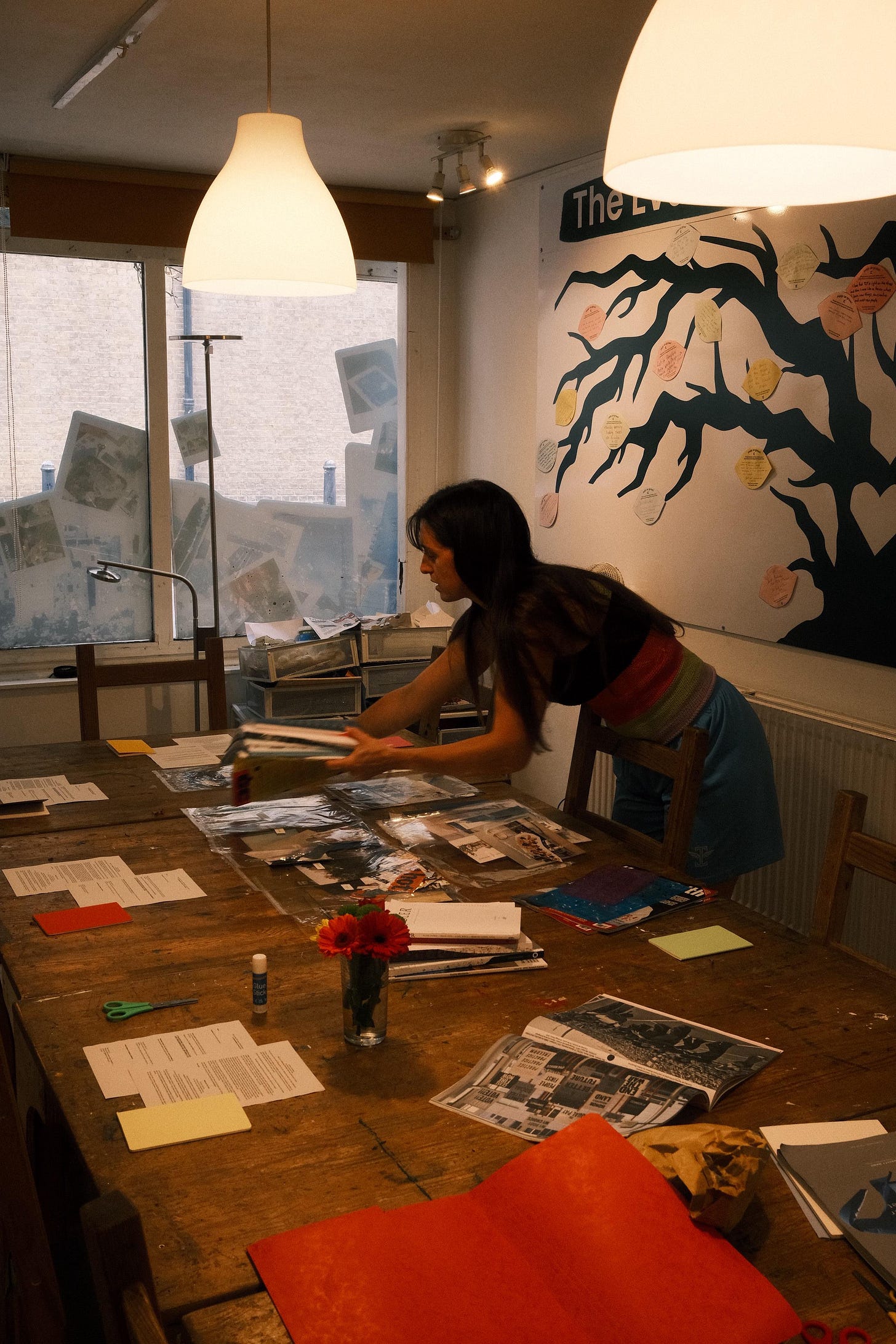

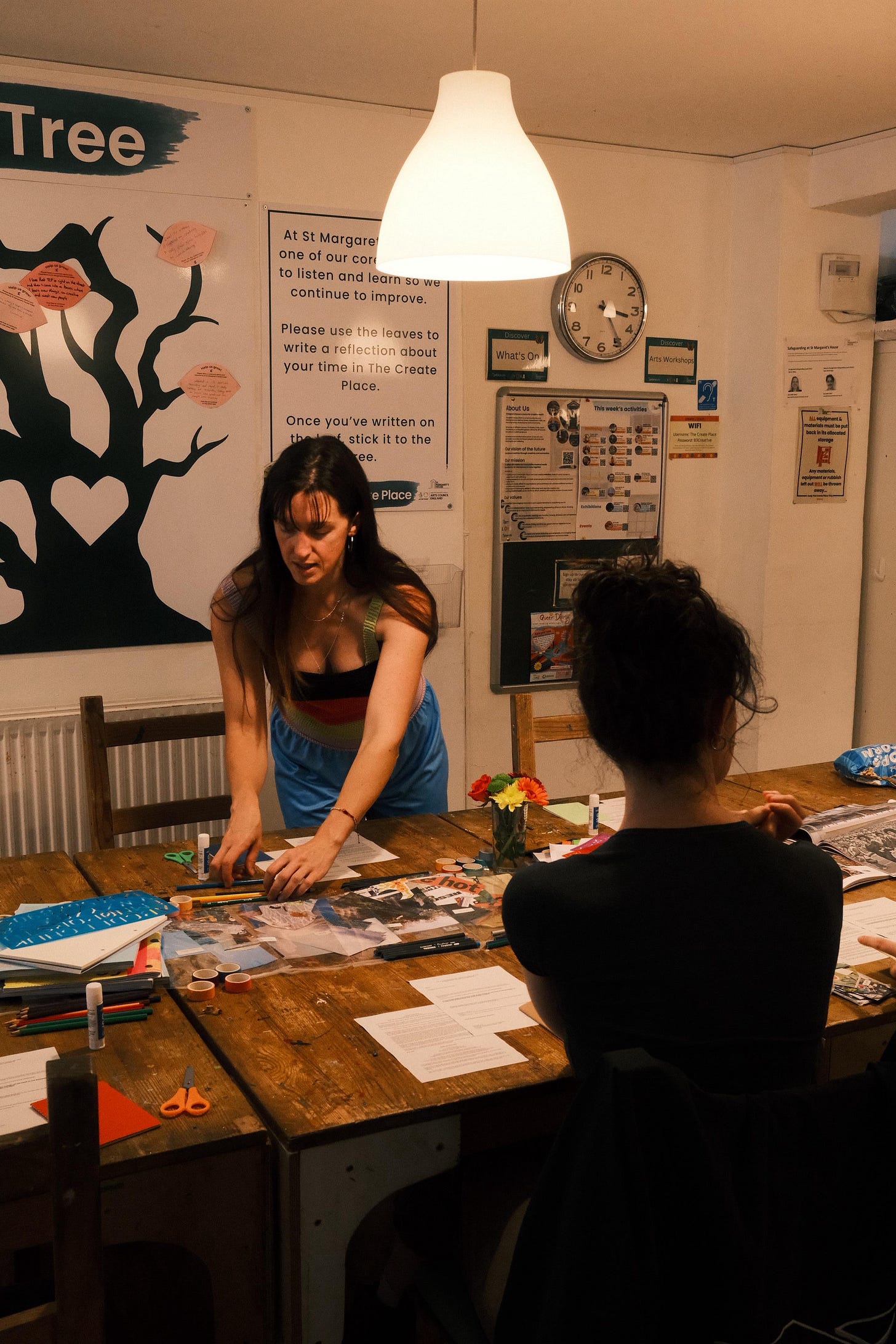
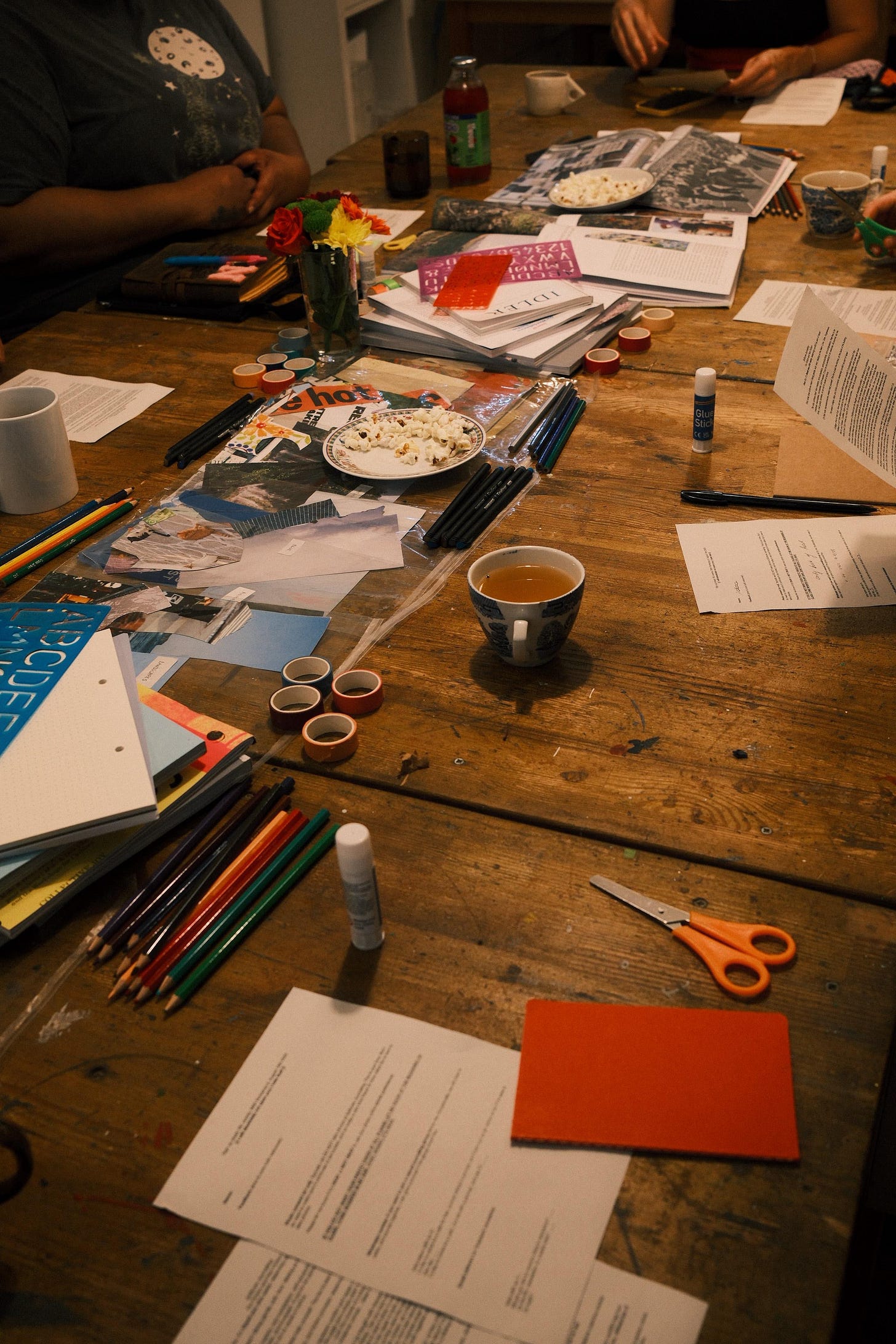
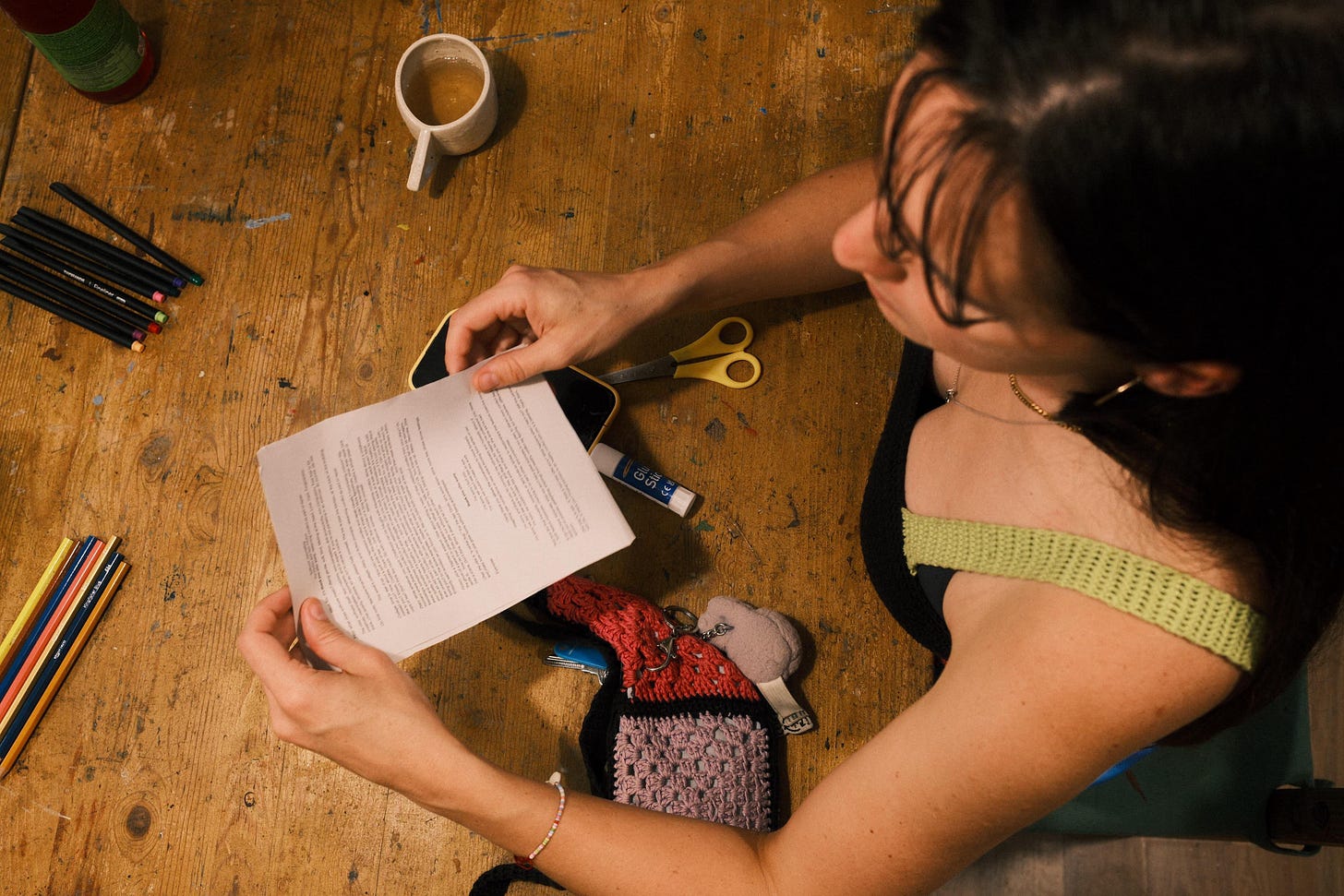
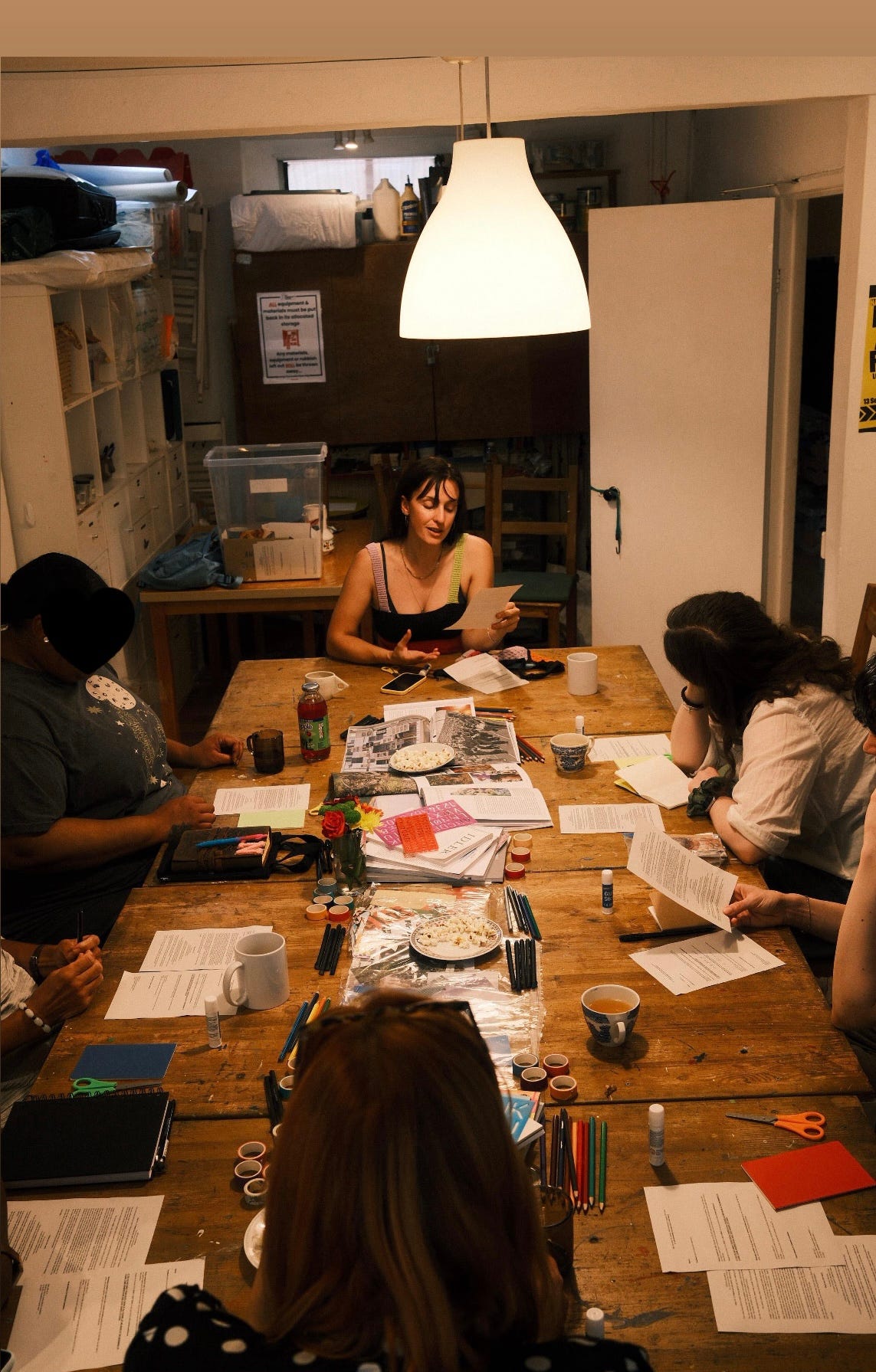
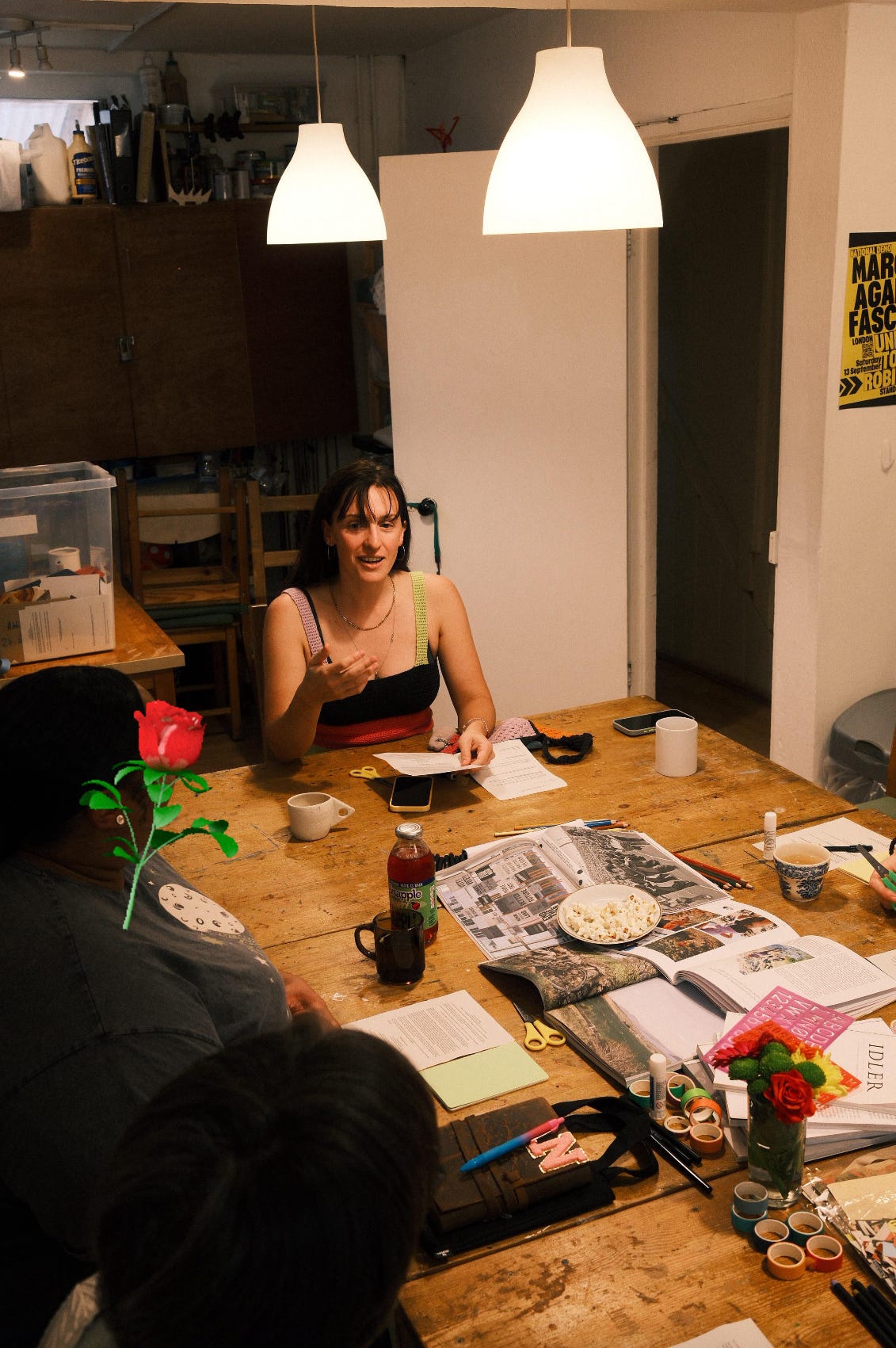
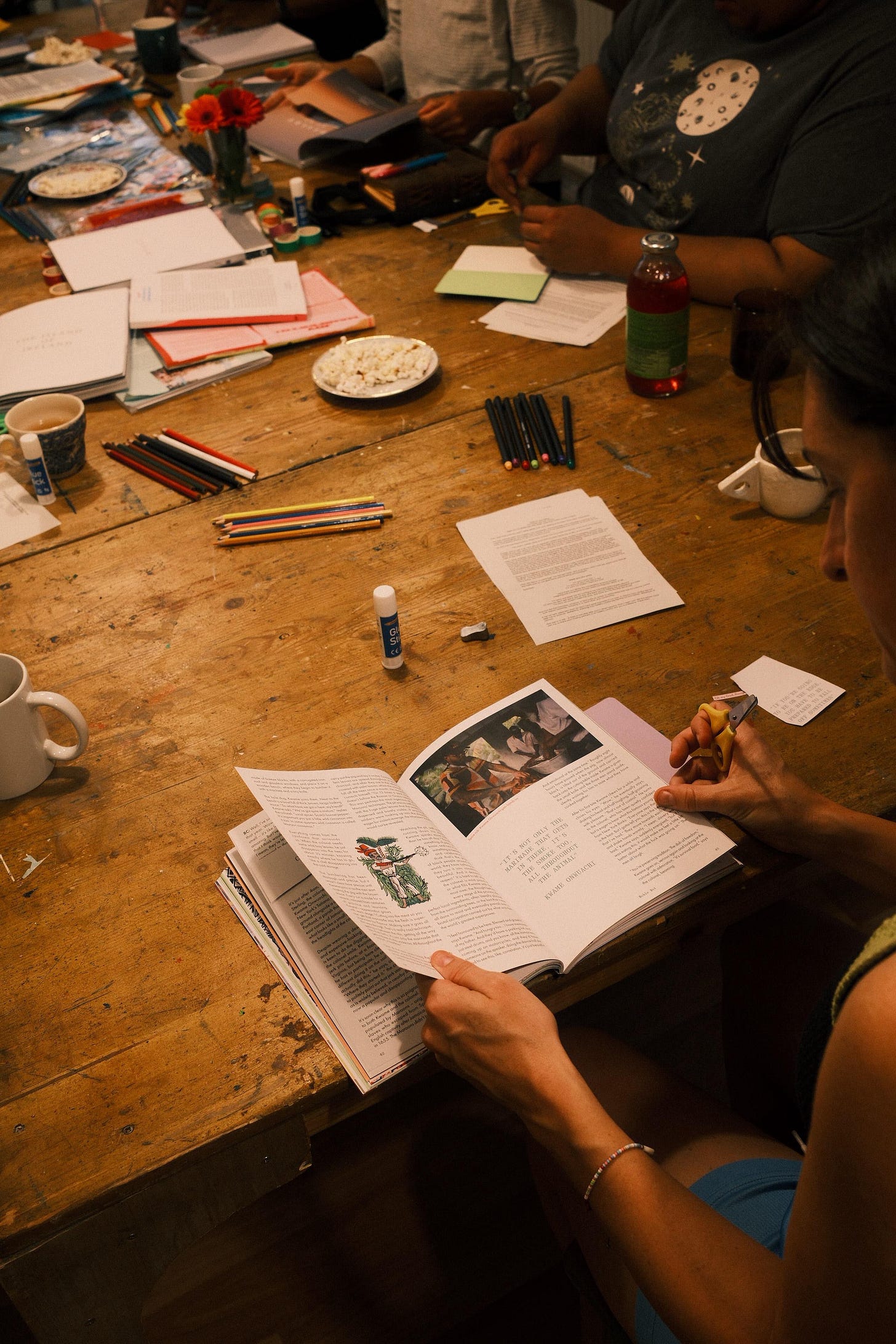
Best of luck with the last few, and any more to come in the future!